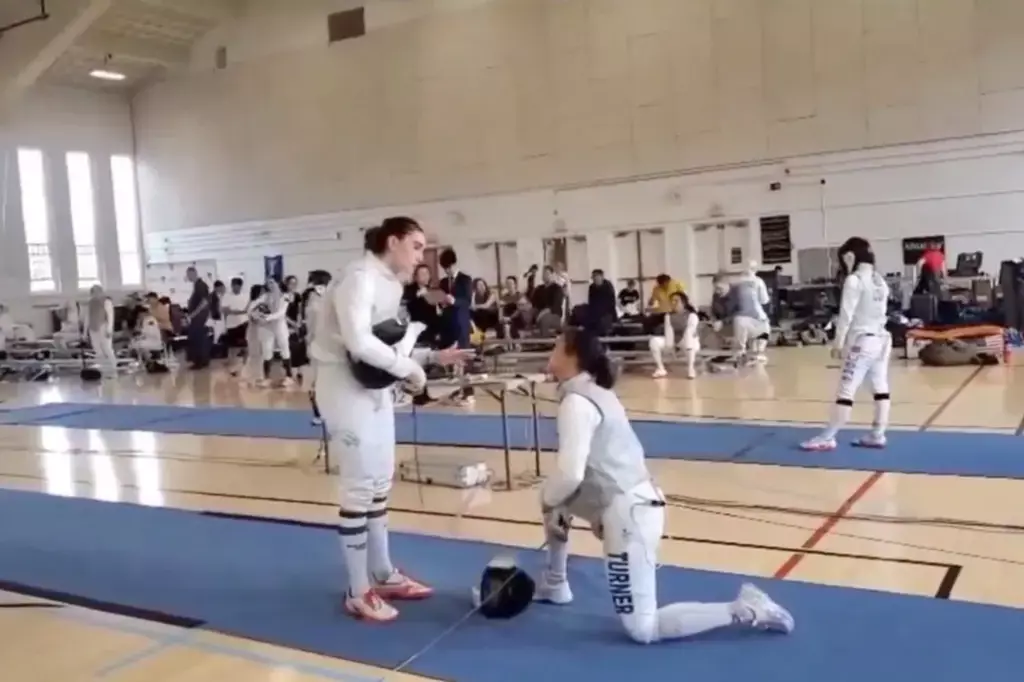
Fencer Disqualified After Refusing to Play Against Trans Opponent
The debate on trans inclusion in women’s sports has taken center stage once again, this time in the world of fencing. At a recent tournament in Maryland, fencer Stephanie Turner was disqualified for refusing to compete against transgender athlete Redmond Sullivan. The incident has sparked a heated debate, with some arguing that allowing trans athletes to compete in the gender they identify with is unfair, while others believe it is a matter of respecting individual identity.
According to reports, Turner knelt in protest before the match, citing that the competition was unfair. However, USA Fencing, the governing body for the sport, ruled that Turner had violated several rules, including the requirement to compete with the fencer assigned to her at the start of the tournament.
The incident has drawn attention from high-profile figures, with both J.K. Rowling and Martina Navratilova weighing in on the issue. Rowling, the renowned author of the Harry Potter series, has been a vocal critic of trans inclusion in women’s sports, stating that it is unfair to women who have spent their entire lives training and competing in their respective gender categories. Navratilova, a tennis legend and advocate for LGBTQ+ rights, has argued that allowing trans athletes to compete in the gender they identify with is a matter of respecting their individual identity and humanity.
However, not everyone agrees with the stance taken by Turner and her supporters. Many in the LGBTQ+ community have spoken out against the discrimination and marginalization of trans individuals, arguing that it is crucial to recognize and respect their identities. They point out that trans women, like Sullivan, have undergone extensive hormone therapy and gender confirmation surgeries to align their bodies with their gender identity, and that competing in the gender they identify with is a fundamental human right.
Furthermore, many experts argue that the concept of “fairness” is subjective and can be influenced by a range of factors, including societal and cultural norms. They argue that what may seem unfair to one person may be seen as unfair to another, and that it is crucial to consider the broader implications of excluding trans athletes from competition.
The incident has also raised questions about the lack of transparency and consistency in the rules and regulations governing trans inclusion in women’s sports. Many have pointed out that there is a lack of clear guidelines and protocols for dealing with situations like this, and that it is crucial to establish a more comprehensive and inclusive framework for accommodating trans athletes.
In the aftermath of the incident, USA Fencing has announced that it will review its rules and regulations regarding trans inclusion in women’s sports. The governing body has also stated that it will work with the LGBTQ+ community and other stakeholders to develop a more comprehensive and inclusive framework for accommodating trans athletes.
As the debate surrounding trans inclusion in women’s sports continues to rage on, it is clear that there is no easy solution to this complex and sensitive issue. However, it is crucial that we approach the topic with empathy, understanding, and respect for the identities and experiences of all individuals. By doing so, we can work towards creating a more inclusive and welcoming environment for everyone, regardless of their gender identity or expression.
Sources:






